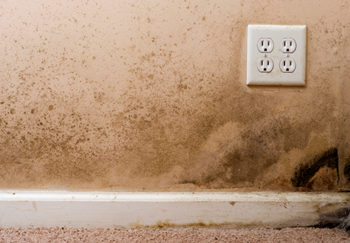Runny noses are a not-so-fun fact of life. And for the most part, they aren’t serious. For most people, it’ll be gone within 3-5 days of when it starts. If you have one, stay well hydrated, use tissues, and wash your hands a lot.
But sometimes, runny noses can be caused by other things, like ongoing allergies. And a runny nose may also be caused by something more serious, like fluid leaking from around your brain and spine (called cerebrospinal fluid). Cerebrospinal fluid (CSF) rhinorrhea is a condition where CSF fluid leaks out of your nose. While rare, it’s important to know how to spot the difference between a simple case of the sniffles and a CSF leak.
What Causes Rhinorrhea?
Rhinorrhea is just the medical term for “runny nose.” And there are a lot of potential causes, like:
- Allergies
- A cold
- Nasal tissue inflammation (rhinitis)
- Flu
- Respiratory illnesses (including RSV and COVID-19)
- Sinus infections
- Being out in the cold
- Nasal polyps
- Crying
- Eating spicy foods
- Pregnancy
- Side effect of some medications
- Getting something stuck in your nose
- Inhaling an irritant (like smoke)
- CSF leak
For most of these causes, your runny nose will clear up without medical help. But only 2 can be an emergency.
If something is stuck up your (or more likely, a child’s) nose and you can’t get it out, you’ll need to be seen by a doctor.
CSF leaks aren’t as obvious as a misplaced Lego. But they also need medical attention.
What Is a CSF Leak?
Cerebrospinal fluid protects the area around your brain and spine. It helps keep your nervous system safe during falls and normal bumps-and-bruises. It also helps carry waste products away from the brain.
CSF is held in place by a covering called the dura. But sometimes, during medical procedures, trauma, or spontaneously, a small tear in the dura allows CSF fluid to leak out. This can happen closer to the brain (cranial) or closer to the back bones (spinal).
Are CSF Leaks Serious?
CSF leaks often heal on their own, but they can become serious. Especially if they last for a long time.
If your CSF leak is causing drainage from your nose, it’s more likely to be coming from the area around your brain than the area around your spine.
A cranial CSF leak means you’re more at risk for brain bleeds, meningitis, and problems with your brain function. If you have CSF coming out of your nose or ear, you’ll need to be seen.
Worried About Your Runny Nose?
Your primary care doctor can help you narrow down the cause.
Differences Between Allergies, Colds, and CSF Rhinorrhea
So, when fluid is coming out of your nose, how can you tell what’s causing it? It’s not always easy. Some symptoms, like headaches, are shared by many causes. Others, like dizziness, are more common if you have a CSF leak, but can be caused by colds and allergies as well.
Here are some of the symptoms you might notice, and which cause they're more common with.
| Symptom | Allergies | Colds | CSF Leak |
| Clear watery fluid | Sometimes | Usually thick and yellow | ✅ |
| Thicker mucus | ✅ | ✅ | Never |
| Headaches | ✅ | ✅ | ✅ |
| Nasal Congestion | ✅ | ✅ | ✅ |
| Dizziness | ✅ | Infrequently | ✅ |
| Ear Ringing | ✅ | ✅ | ✅ |
| Dripping in Throat | ✅ | ✅ | ✅ |
| Sore Throat | ✅ | ✅ | ✅ |
| Loss of Smell | ✅ | ✅ | ✅ |
| Vision Problems | ✅ | Watery eyes | ✅ |
| Seizures | ✅ | ||
| Neck Pain | ✅ | ||
| Loss of appetite | ✅ | ✅ | ✅ |
| Lasts for | As long as you’re exposed to your allergen | 3-10 days | Hours to weeks. Some need treatment to resolve. |
CSF Fluid vs Mucus
In almost every instance of a runny nose, the liquid coming out is mucus. But CSF fluid is very different from mucus.
Here are some of the differences you may notice:
- Water-like consistency
- Tastes salty or metallic
- Doesn’t dry on tissues
- May also come out of ear
You may also see a "halo." Some people with a CSF leak will notice a small drop of blood on their pillowcase, with a clear ring around it (halo). This is not something that happens with mucus.
Runny Noses: Mostly Just Annoying
For the most part, runny noses are harmless. But that doesn’t mean they aren’t annoying. The good news is that usually they’ll be over in just a few days.
Here are some tips that can help them pass a little quicker:
- Rest - If your runny nose is caused by illness, taking a break can help.
- Steam - Whether from a cup of tea or a hot shower, inhaling steam can help loosen mucus.
- Neti-pot or nasal spray - These can help clear mucus out and relieve inflammation.
If it occurs frequently, or predictably, then it may be worth talking to an allergist to find out what’s causing it and what can make it better.
And if it’s CSF that’s leaking, an ENT can help.


